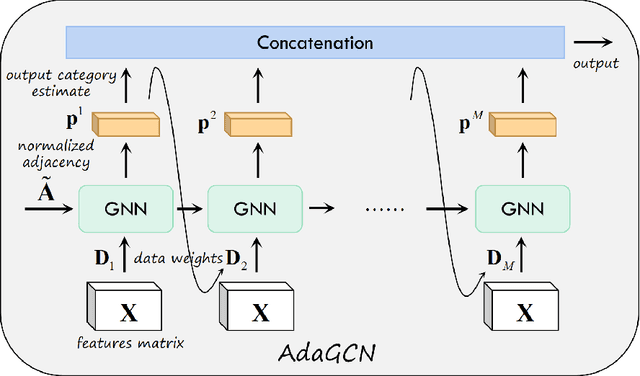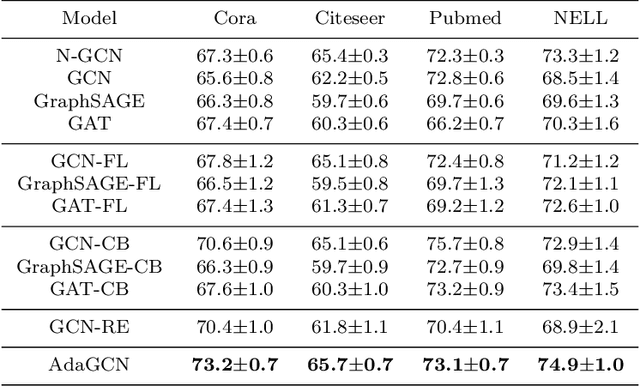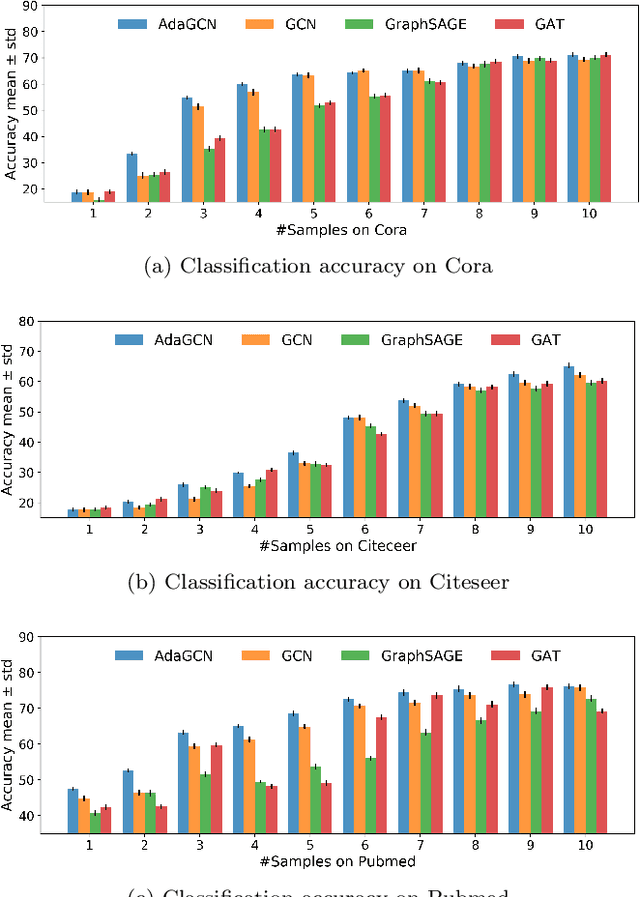AdaGCN:Adaptive Boosting Algorithm for Graph Convolutional Networks on Imbalanced Node Classification
Paper and Code
May 25, 2021



The Graph Neural Network (GNN) has achieved remarkable success in graph data representation. However, the previous work only considered the ideal balanced dataset, and the practical imbalanced dataset was rarely considered, which, on the contrary, is of more significance for the application of GNN. Traditional methods such as resampling, reweighting and synthetic samples that deal with imbalanced datasets are no longer applicable in GNN. Ensemble models can handle imbalanced datasets better compared with single estimator. Besides, ensemble learning can achieve higher estimation accuracy and has better reliability compared with the single estimator. In this paper, we propose an ensemble model called AdaGCN, which uses a Graph Convolutional Network (GCN) as the base estimator during adaptive boosting. In AdaGCN, a higher weight will be set for the training samples that are not properly classified by the previous classifier, and transfer learning is used to reduce computational cost and increase fitting capability. Experiments show that the AdaGCN model we proposed achieves better performance than GCN, GraphSAGE, GAT, N-GCN and the most of advanced reweighting and resampling methods on synthetic imbalanced datasets, with an average improvement of 4.3%. Our model also improves state-of-the-art baselines on all of the challenging node classification tasks we consider: Cora, Citeseer, Pubmed, and NELL.
 Add to Chrome
Add to Chrome Add to Firefox
Add to Firefox Add to Edge
Add to Edge